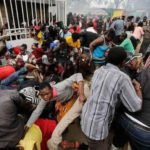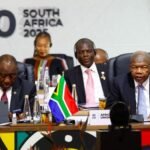The United Nations (UN) has appointed Alexander Ivanko as the body’s Special Representative for Western Sahara.
Ivanko will also serve as the Head of the United Nations Mission for the Referendum in Western Sahara (MINURSO).
The UN Secretary-General, António Guterres, announced the appointment of the Russian, who takes over from Canada’s Colin Stewart.
Ivanko, who has been MINURSO’s Chief of Staff since 2009, holds a master’s degree, with honours in Journalism, from the Moscow State University.
He previously served as Director of Public Information for the United Nations Mission in Kosovo (2006–2009) and United Nations Spokesperson in Bosnia and Herzegovina (1994–1998).
He was also Senior Advisor to the Representative on Freedom of the Media of the Organisation for Security and Cooperation in Europe (1998-2005).
Ivanko, who brings more than 30 years of experience in international affairs, peacekeeping and journalism, began his career as a correspondent in Afghanistan and the United States for a Russian newspaper.
The UN considers Western Sahara a non-self-governing territory in the absence of a final settlement.
About 20 percent of the territory is controlled by the self-proclaimed Sahrawi Arab Democratic Republic, while the remaining 80 percent is occupied and administered by neighbouring Morocco.
This has led to strained relations between Algeria and Morocco, with Algiers recently asking the UN to facilitate a referendum for Western Sahara.
Algeria’s Ambassador to the UN, Sofiane Mimouni, made the call in an address at the regional seminar of the UN Special Committee on Decolonisation in Dominica.
Mimouni urged the committee to support the success of the decolonisation process in the disputed region and protect the people, especially in the context of the Covid-19 pandemic.
Development Diaries understands that since 1975, Algeria has hosted a large proportion of the Sahrawi population in refugee camps near the city of Tindouf.
The majority of Sahrawi population are understood to be dependent on humanitarian aid to sustain basic needs such as access to food, water, and shelter.
Source: UN
Photo source: EU Civil Protection and Humanitarian Aid





